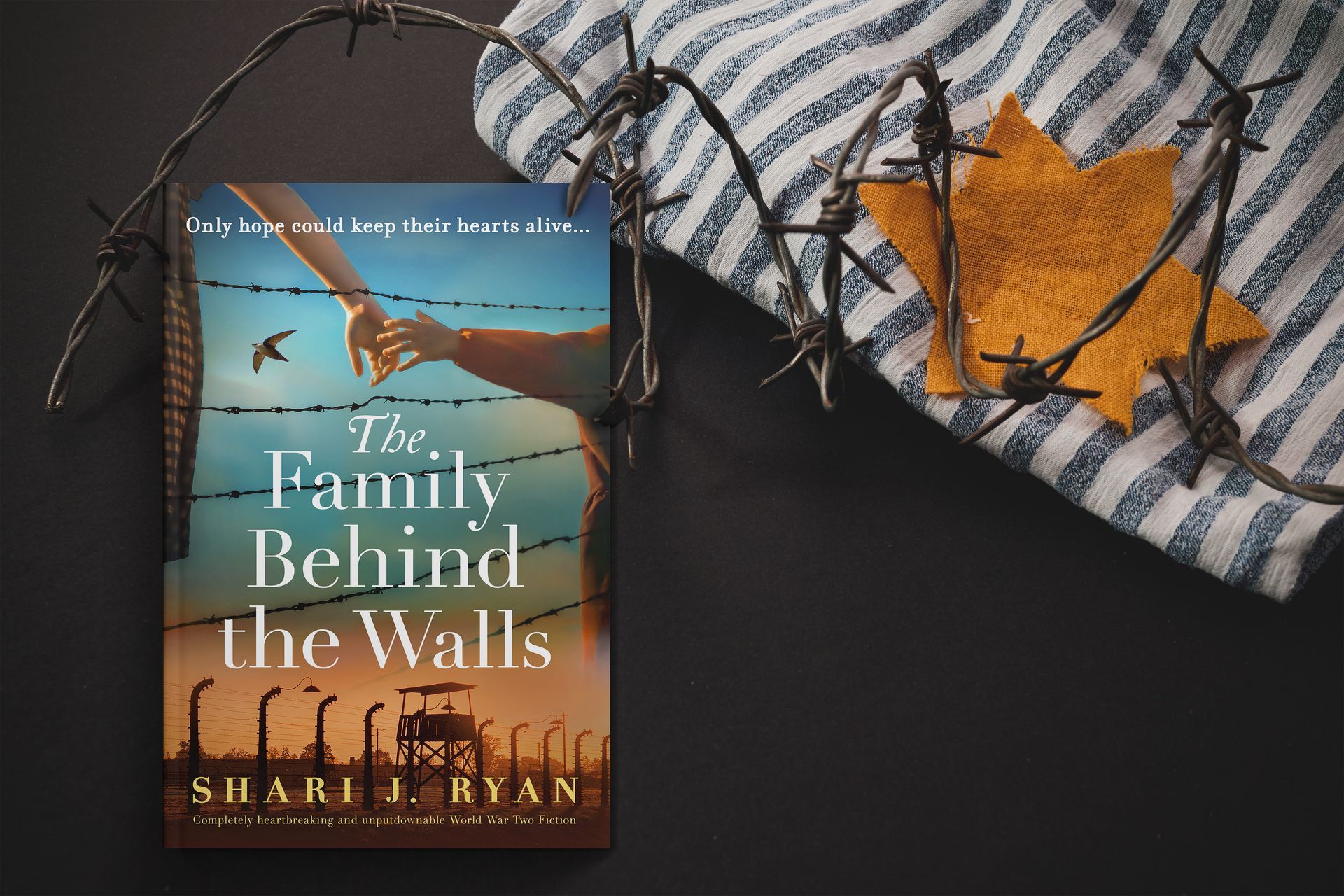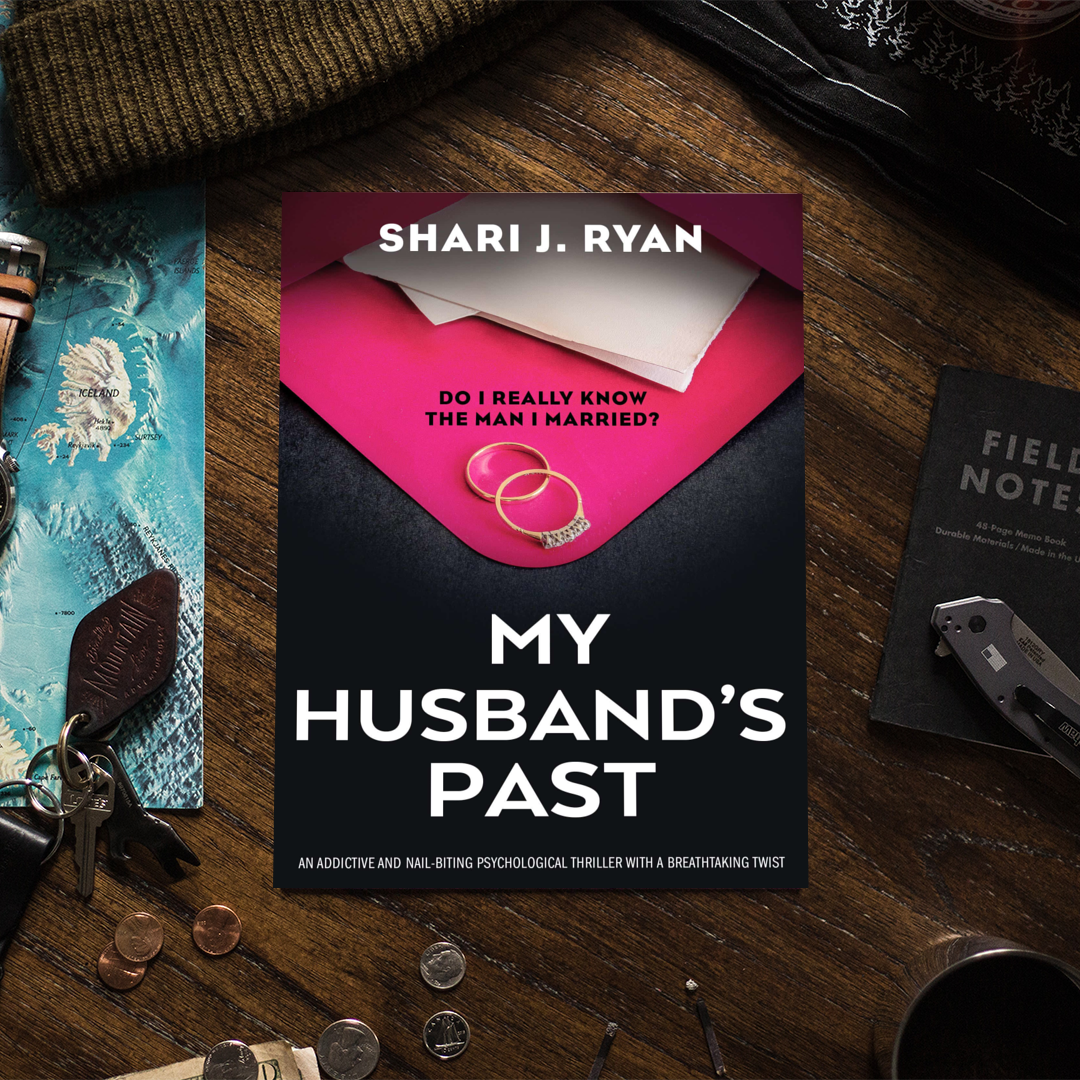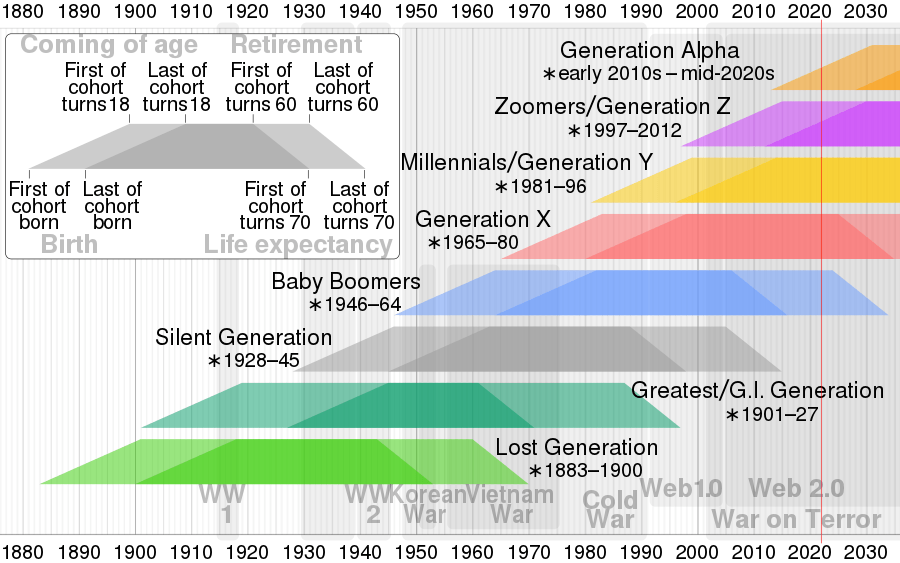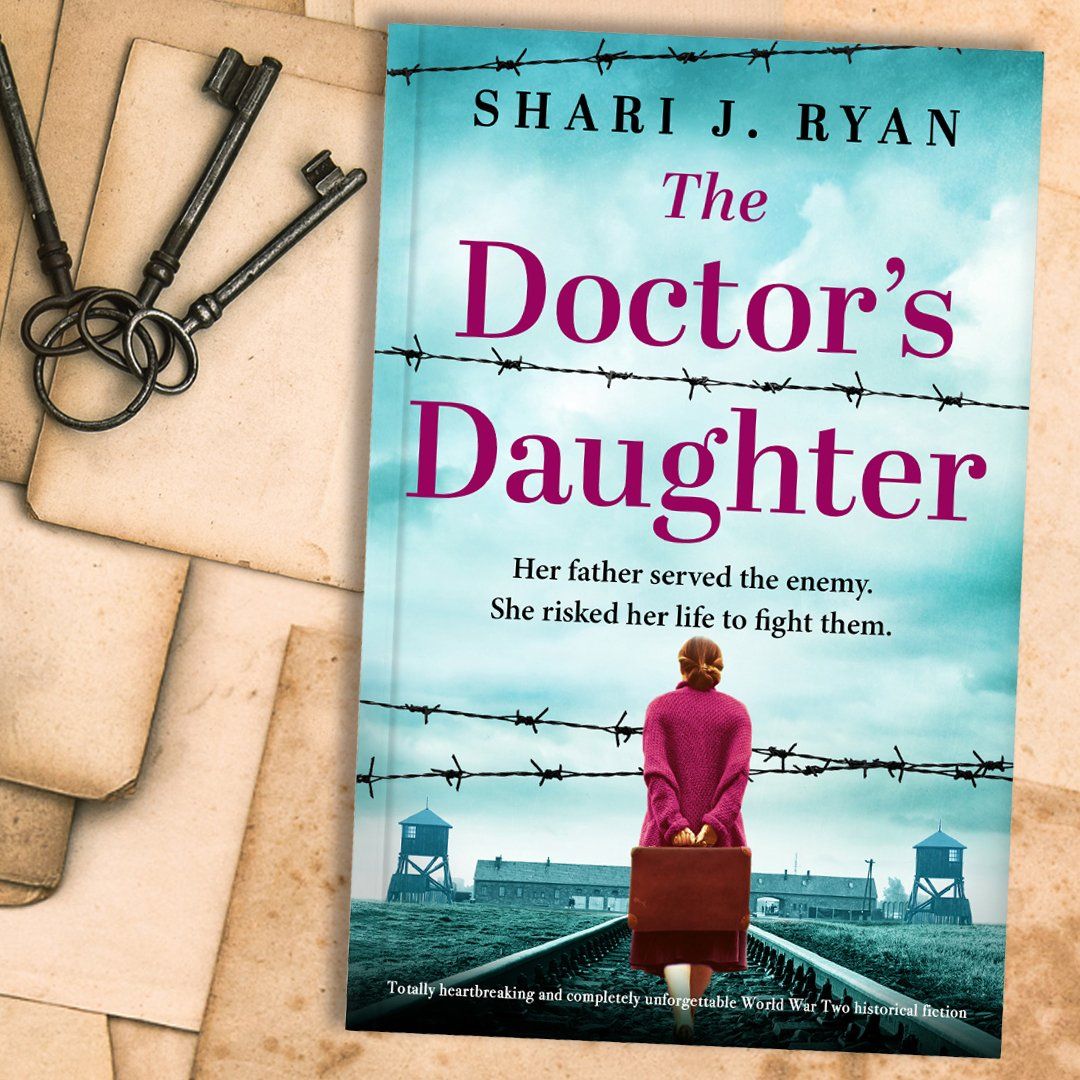The Doctor's Daughter and the Reality behind Mixed and Privileged Marriages During World War Two
Shari J. Ryan • April 28, 2022
On the heels of Holocaust Remembrance Day in Israel, I've released a new novel touching upon this tragic time in history.
The Doctor's Daughter: Totally heartbreaking and completely unforgettable World War Two historical fiction is now available.
I always like to explain my reason for the words. For this book, I wanted to dive in a little deeper toward some of the untold stories and found a topic that seemed like a rare occurrence during World War II...
As society continues to grow support for all-inclusive variations of love, relationships, marriage, and divorce, history can vividly show how far we have come. But, are we taking too long to normalize unique identity without strings attached? It seems society will never be fully ready to see through another set of eyes, so we either ignore what others think or waste time caring about thoughts that shouldn't influence us.
If we can't have faith in society, we should at least listen to Shakespeare's lyrical wisdom:
"...to each his own, thine self be true” —Shakespeare, 1623
Who can argue with Shakespeare? He was right, and he still is now.
I know it isn’t a simple subject to discuss because we all have voices—some used for the greater good, and others, well...
However, if we take a deeper look at what has caused disturbances in generations of people moving toward a universal understanding for all kind, maybe we’d notice that those who don’t see the same shade of blue in the sky as others can still become convinced to imagine a different hue based on historical fact and past experiences.
I was born in the early eighties, an interesting time period that dumps people like me into two generational groups (Gen X, Gen Y, and Millennials — neither here nor there). We’re left to make our own statements about how society views us today.
However, the prior parental generation to mine (Baby Boomers) are the “children” who were raised by parents of the World War II generation. Therefore, I’m only the third generation down in my family from a time when immigration to the United States reached its highest peak between 1880 and 1920.
- One of out four of my grandparents were immigrants.
- All of my great-grandparents were immigrants.
- Half of them lived through a big part of my life, influencing me in various ways.
Each family has their own story and reason for immigrating or not. Many wanted a taste of the “free world” while others wanted to escape discrimination. Plenty didn’t want to leave their roots behind.
My grandmother is a Holocaust survivor. Only she and her mother (my great grandmother) survived life in Theresienstadt out of their entire family. My grandmother’s family tried to migrate to the United States before World War II begun, but they were placed on a seven year waiting list. Therefore, many didn’t make it out of Europe before Hitler’s plans became more overt.
For everyone in Eastern Europe, life had to continue on with looming threats of a changing world, new laws, and prohibitions. Until when over two dozen countries/territories became occupied by Germany, the commoner rules of marriage varied between countries and continents, all based around age and gender. When the Third Reich took the reins, Jewish people lost the right to marry non-Jewish Germans. Between 1939 and 1945, there were over eleven million Jewish people living within the German-occupied territory. Some were already married to a person of non-Jewish denomination, and those who were at an age of wanting to settle down could not legally marry outside of their faith within German territories. In fact, they motivated divorce between a non-Jewish German, encouraging them to leave their Jewish spouse.
_________________________
“Intermarried families faced strong pressure to divorce, especially those in which the non-Jewish partner was female. The non-Jewish partner often faced loss of a job or property due to Aryanization. From the fall of 1944, many non-Jewish partners in mixed marriages were drafted for forced labor. In the Protectorate of Bohemia and Moravia, some Czech men married to Jewish women were sent to a forced labor camp and promised release if they agreed to divorce. In Greater Germany, the divorce rate has been estimated by historians between 7 and 10 percent.” [Wikipedia]
_________________________
When divorce rates didn’t rise to Hitler’s expected numbers, they devised a new plan. To create a pure Aryan race, Aryans had to be protected and thus came an exception to the antisemitic Jewish laws called a “mixed marriage” or a “privileged family.”
A “mixed marriage” comprised either a Jewish female and a non-Jewish male or a non-Jewish female and a Jewish male.
A couple was considered most privileged if the female was the Jewish spouse and the male was not Jewish, and they had children that were not being raised Jewish. These families were given extra food rations and were exempt from forced labor and deportations for longer than others in line for immediate persecution.
Even in a non-privileged mixed marriage, men were at least often saved from deportation.
The laws changed in 1944, leaving no further exceptions to mixed marriages. People in mixed-marriages, both Jewish and non-Jewish, were sent to prison camps to tend to labor duties.
Not only were Jewish people told who they weren’t allowed to marry, but many were torn away from their spouses if they instituted their marriage before the law was enacted. Children were no exception to this rule. If the children were being raised Jewish, which was more likely to be the case with a Jewish mother and a non-Jewish father, they were deported as well. Knowing that six out of eleven million Jewish people were killed during World War II, it’s easier to imagine how many non-Jewish citizens of Nazi Germany lost their spouses and children to acts of hate. Fortunately, for this selection of people, there were more survivors than in any other situation.
The World War Two generation was scarred, rightfully so, and many kept their sentiment of keeping close to those they share a cultural and/or religious bond with. Those fears were commonly present in their children’s lives (Baby Boomers), and then carried down to my generation (Gen X/Gen Y/Millennials), as well.
I grew up afraid to speak of my Jewish faith. How could I not feel concern? At a young age, I learned first-hand that half of my family had been murdered, or perished, from inhumane living conditions during World War Two just because they were Jewish.
The knowledge didn’t make me hate others. It caused me personal distress and sometimes panic, especially if someone found out I was Jewish and didn’t respond respectfully. And today, I wonder how many others are in a similar situation. I think about how many Gen X/Gen Y/Millennials have also woken up to a swastika symbol spray painted onto the property of their family home, or the marking etched onto their school desk, or approached with intolerable comments.
This still happens.
Most offenders don’t know the Hitler’s reason for trying to rid the world of Jewish people. From the embarrassment of losing World War One, Hitler blamed the Jewish people for being traitors of war, for being spies, and helping “the other side.” Hitler also blamed Jewish people for starting the war in order to cause Europe political and financial ruin, hoping to prepare Europe for Jewish “control.” (encyclopedia.ushmm.org)These “reasons” had only provided through forms of propaganda, never aided with proof.
I was the first one in my parents’ lineage to marry outside of my religion. I married for love. If we were living in the 1940s in Nazi Germany, they have forced my husband to sacrifice his well-being as a punishment for marrying a Jewish woman. He would have been sent to a labor camp just as I would have, along with our two Jewish children. All because...we got married for love.
It seems like we haven’t made enough strides forward in society, but for every new level of understanding this world reaches, the braver I feel for doing what was right for me, for bringing light to historical facts that used to keep me up at night while I lived in fear of who I am. Still, I’m just one example in a world where no one fits in.
The Holocaust is a very broad topic that encompasses many aspects, each of which offers a summary of the meaning of hatred, discrimination, antisemitism, and racism.
The act of hatred doesn’t present itself in only one form. Therefore, I believe the smaller stories make up the big ones. Personally, I prefer to understand exactly how we got somewhere rather than reading a brief summary of where we’ve been.
Before writing The Doctor’s Daughter, I didn’t know the details about mixed marriages or privileged marriages and families, nor did I know how it affected so many throughout Hitler’s determination to remove an entire race from the world. Like all the historical novels I write, I appreciate being able to walk away at the end with more knowledge and understanding of who I am, why I am, and how I became this person I am.
INDUSTRY NEWS
Blog

The Family Behind the Walls: Absolutely heartbreaking and gripping World War Two fiction-
My great-grandfather was murdered in a gas chamber upon arrival at Auschwitz. He died from Zyklon B poisoning. His body was thrown into a pile with countless others and taken to the crematorium, where all that remained of him was reduced to ash. Why? Because he was Jewish. A question has haunted me as I grew up and tried to piece together my family’s history: What was it all for?
This question became the driving force behind my writing of The Family Behind the Walls. I wondered if, by the end of the story, I might find an answer. And I did.

My best friend disappeared twenty years ago. I thought she was dead. But today I’ve received a message that makes my heart stop. It says it’s from Izzy. And she’s blaming my new husband for her disappearance… I stare at the email in horror. I’ve only just managed to put what happened to Izzy behind me. My life is so different now. I have two perfect children, and the perfect husband at last. “I couldn’t just say nothing. You remember I was being stalked? My stalker is your husband. You're in danger. Run.” My blood turns to ice as I look up at my charming, caring husband. Is this some kind of joke? Griffin is kind, he's safe. But as he smiles at me, the doubt starts to creep in. The way he always asks me about my childhood, pressing for information about my friends. The way he always wants to know where I am… I thought my best friend was dead. I thought her stalker killed her. If the email isn’t really from Izzy, then who sent it—and what do they want from my family? But if it is, am I living with the man I’ve feared for twenty years? And if he can’t hurt Izzy, will he settle for me instead—or worse, my children…?









